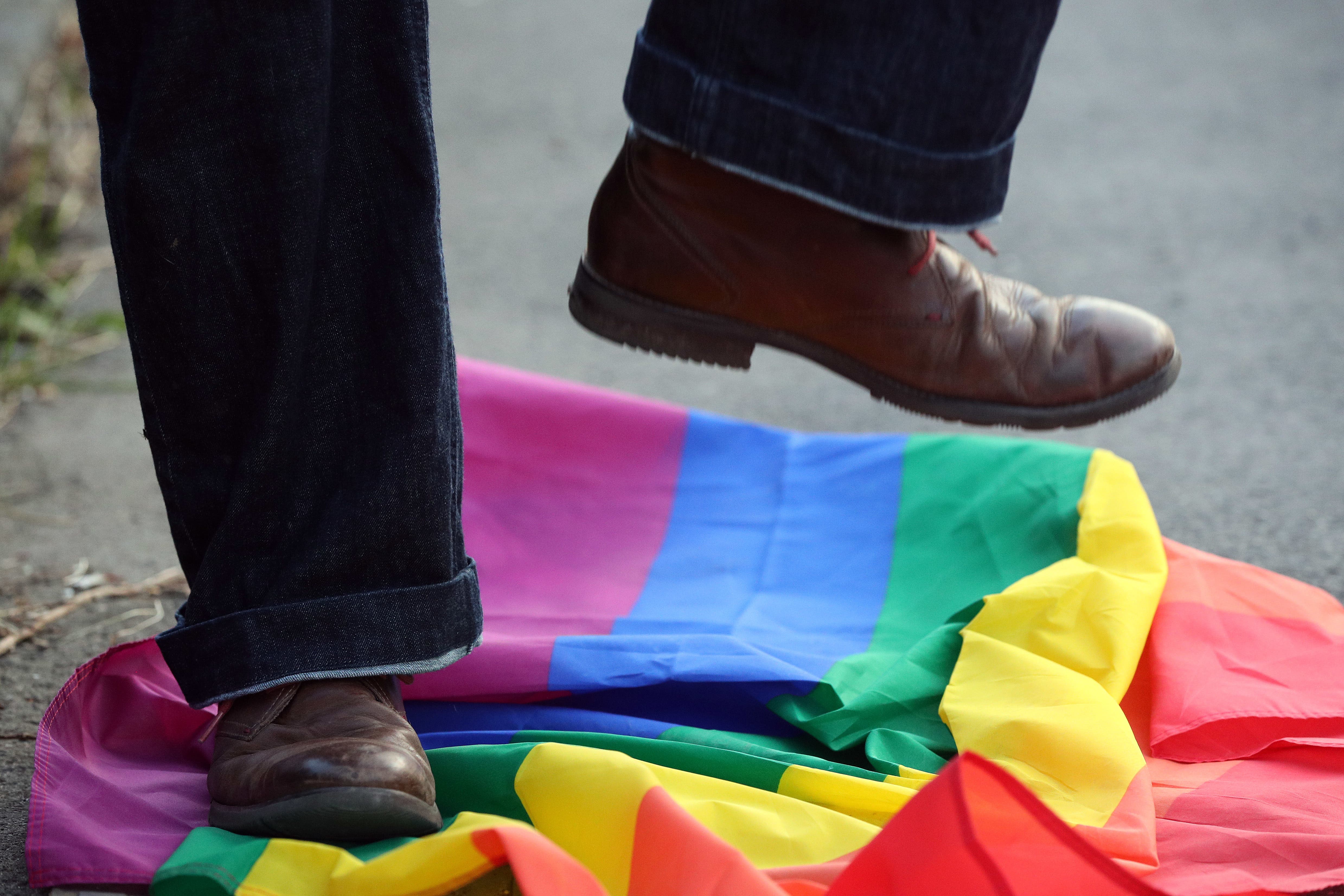Police-recorded hate crimes fall for first time in a decade
The total had previously risen every year since comparable data began in 2012/13.

Your support helps us to tell the story
From reproductive rights to climate change to Big Tech, The Independent is on the ground when the story is developing. Whether it's investigating the financials of Elon Musk's pro-Trump PAC or producing our latest documentary, 'The A Word', which shines a light on the American women fighting for reproductive rights, we know how important it is to parse out the facts from the messaging.
At such a critical moment in US history, we need reporters on the ground. Your donation allows us to keep sending journalists to speak to both sides of the story.
The Independent is trusted by Americans across the entire political spectrum. And unlike many other quality news outlets, we choose not to lock Americans out of our reporting and analysis with paywalls. We believe quality journalism should be available to everyone, paid for by those who can afford it.
Your support makes all the difference.The number of hate crimes recorded by police in England and Wales has fallen year-on-year for the first time in a decade, but those motivated by religious and transgender hate have risen.
A total of 145,214 offences were recorded in the two nations in the year ending March 2023, down 5% from 153,536 in the previous 12 months, the Home Office said.
The total had previously risen every year since comparable data began in 2012/13.
The Government has noted that the fall coincided with new policing guidance which it said “may have led to greater scrutiny of the threshold of what constitutes a criminal offence of public fear, alarm or distress”.
There were 101,906 race hate crimes, down 6% from the previous year (108,476).
But religious hate crimes were up by 9% to 9,387 offences, while transgender hate crimes increased by 11%, to 4,732 offences.
The most commonly targeted group when it came to religious hate crime were Muslims, accounting for 39% of religious hate crime offences. This was followed by Jewish people, who were targeted in 17% of religious hate crimes, followed by Christian (7%), Hindu and Sikh (both 3%).
In 22% of these offences the targeted religion was not known.
LGBTQ+ group Stonewall criticised political leaders for not having acted “seriously or quickly enough” against hate crime, adding that “many of them are filling the public domain with toxic language that dehumanises LGBTQ+ people”.
The Home Office said the rise in transgender hate crime may be down to such issues being “heavily discussed by politicians, the media and on social media over the last year” but also gave increased awareness in the police in the identification and recording of these crimes as a possible reason.
But Victim Support said “falling public trust in the police is a real issue” and suggested this may have contributed to the overall fall in the number of police-recorded hate crimes.
Becca Rosenthal, national hate crime lead at the charity, said: “Those we support increasingly tell us that they are reluctant to approach the police, so these figures could simply reflect less people reporting to the police. Given this, independent support services for victims have never been more important.”
Sexual orientation hate crimes fell by 6%, to 24,102 offences and disability hate crimes fell by 1% to 13,777 offences.
The Home Office said just over half (51%) of the hate crimes recorded by the police were for public order offences, 41% were for violence against the person offences and 5% were recorded as criminal damage and arson offences.
(The fall was) largely driven by a decrease in racially or religiously aggravated public fear, alarm or distress when flagged as a hate crime
This year’s total figures do not include Devon and Cornwall Police, who were unable to provide information for 2022/23, the Home Office said.
The department said the overall fall was “largely driven by a decrease in racially or religiously aggravated public fear, alarm or distress when flagged as a hate crime”, which was down 8%, from 50,866 to 46,780 offences.
The Home Office suggested this might be linked to new interim guidance published last year which “may have led to greater scrutiny of the threshold of what constitutes a criminal offence of public fear, alarm or distress”.
The guidance by the College of Policing on the recording of non-crime hate incidents (NCHIs) instructed officers to consider whether there was genuine hostility in the incident or whether it could be considered freedom of speech or thought.
The Home Office said its rules for the recording of these offences had not changed.
A Home Office spokesperson said: “There is no place for hate in our society, it does not reflect the values of modern Britain, and we remain committed to ensuring these abhorrent offences are stamped out.
“We are pleased there has been an overall reduction in hate crimes recorded by police, and the numbers of sexual orientation, race and disability hate crimes all fell. But any instance is one too many.
“We expect the police to fully investigate these hateful attacks and make sure the cowards who commit them feel the full force of the law.”